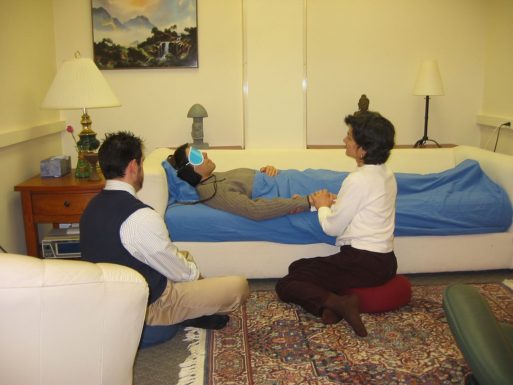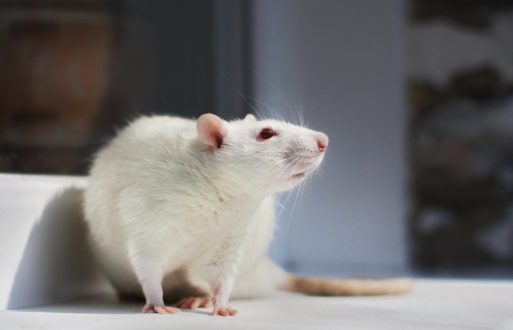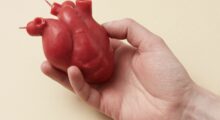
Depression affects about 21 million Americans. “Tripless” psychedelics might help many of them.
A team of scientists at the University of North Carolina has discovered a new psychedelic drug that may offer relief from depression as effectively as LSD and psilocybin without the “trip,” according to a report published in the journal Nature last month. The researchers discovered the drug while building a virtual library of over 75 million molecules that contain a compound found in LSD and psilocybin as well as several other drugs. Although they were not looking for an antidepressant, they decided to focus on molecules that affect serotonin — a neurotransmitter that helps regulate mood. But as their research progressed, they discovered they had created a “perfect psychedelic drug” that produced the antidepressant effect of psilocybin and LSD without the trip.
Psychedelics and Depression
For over two decades, researchers have been studying the effects of psychedelics on people with anxiety and depression. Working initially with patients living with a life-threatening illness, they administered either psilocybin — the active ingredient in “magic mushrooms” — or MDMA (commonly known as Molly or Ecstasy) in a controlled environment with a therapist present to support the patient during the hallucinogenic event. Those early experiments went very well, with most clients reporting significant relief of depressive symptoms and existential anxiety.
Based on that success, numerous researchers, including Roland Griffith, Ph.D. a professor in the Departments of Psychiatry and Neurosciences at the Johns Hopkins University School of Medicine, began using psychedelics to treat people with treatment-resistant major depressive disorder, with similar results. After receiving two doses of the drug psilocybin under carefully controlled conditions, most patients achieved remission from depressive symptoms for as long as 12 months.

Psychedelic-assisted therapy requires a great deal of professional support
Credit: Matthew W. Johnson, via Wikimedia Commons
The problem with psychedelics, however, is the intensive support needed in order to protect the client from psychological injury during their trip. As Dr. Dr. Natalie Gukasyan, M.D. of Johns Hopkins Medicine said in a press release: “The results we see are in a research setting and require quite a lot of preparation and structured support from trained clinicians and therapists. People should not attempt to try it on their own.”
Thus, extending the benefits of psychedelic-assisted therapy to the approximately 21 million Americans who suffer from major depressive disorder would seem to be an impossible task.
But then again, perhaps not.
Tripless Psychedelics Tested on Mice
After reviewing current research on depression and psychedelics, the UNC team of scientists decided to zero-in on molecules that had similar properties in their research, said Brian Shoichet, a professor in the pharmaceutical chemistry department at the University of California, San Francisco, and a co-author of the study. They eventually selected two, and began testing them on mice.
“They were the most potent, and when you gave them to a mouse, they got into the brain at the highest concentrations.” Shoichet told NPR. They were also found to be extremely effective at relieving symptoms of depression in mice, according to Roth.
But what the researchers didn’t see was any indication that the mice were hallucinating — an effect that is typically indicated by a distinctive nose twitch. “We were surprised to see that”, said Roth.
The compound mirrors the effects of a recently refined version of the psychedelic drug ibogaine. A very potent psychedelic made from the root of the African iboga shrub, ibogaine has been shown to be extremely effective in the treatment of addiction, alcoholism and depression in clinical trials. But it causes intense hallucinations, potentially fatal heart problems and other dangerous side effects. So a few years ago, David Olsen, an associate professor in the Department of Chemistry at UC Davis and a team of researchers began tweaking the drug to create a version that was safer and better tolerated.

Tripless psychedelics seem to help depression in mice. Whether that effect will transfer to humans remains to be seen.
Credit: Tatiana Bulyonkova via Flickr
The product of that research is the drug tabernanthalog, or TBG. Thus far tested only on rodents, it appears to greatly reduce drug and alcohol cravings in addicted mice and reduce behaviors associated with depression with no hallucinogenic effects.
Of course, both drugs have thus far been tested only on mice, and their benefits to humans are as yet unknown. One question that remains to be answered is whether the hallucinogenic experience is necessary for psychedelics to have a lasting antidepressant effect, said Dr. Conor Liston, an associate professor of neuroscience and psychiatry at Weill Cornell, who co-authored a commentary on the TBG study. “There’s some evidence both ways,” Liston says.
But one thing all of the researchers agree on is that more studies are needed to learn if “tripless” psychedelics can help people with mental health disorders in a significant way. As Liston told NPR, “Let’s gather the data, let’s see what works, let’s make sure we understand the safety profile,” he says. “But let’s also be open to the possibility that these compounds could really help a lot of people who need help.”

 New Psychedelic Drug May Relieve Depression Without the Trip
New Psychedelic Drug May Relieve Depression Without the Trip



 How Dare You Die Now!
How Dare You Die Now!
 Debating Medical Aid in Dying
Debating Medical Aid in Dying














